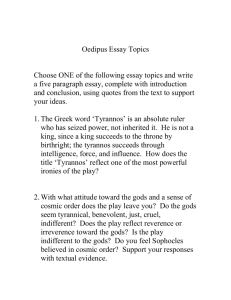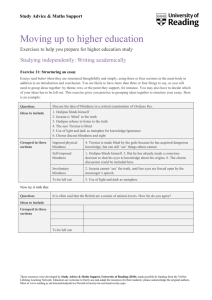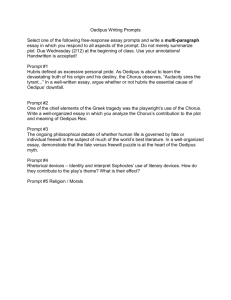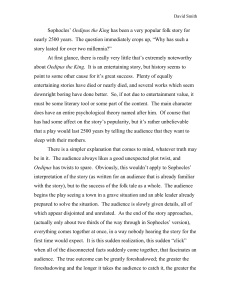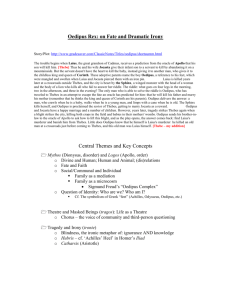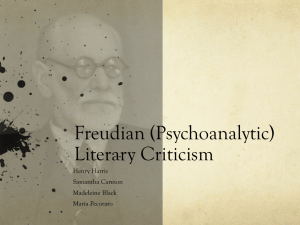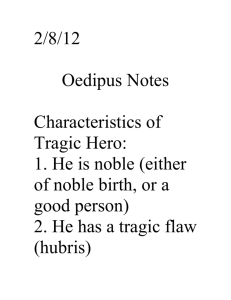Scholarly Interpretations of Oedipus the King
advertisement
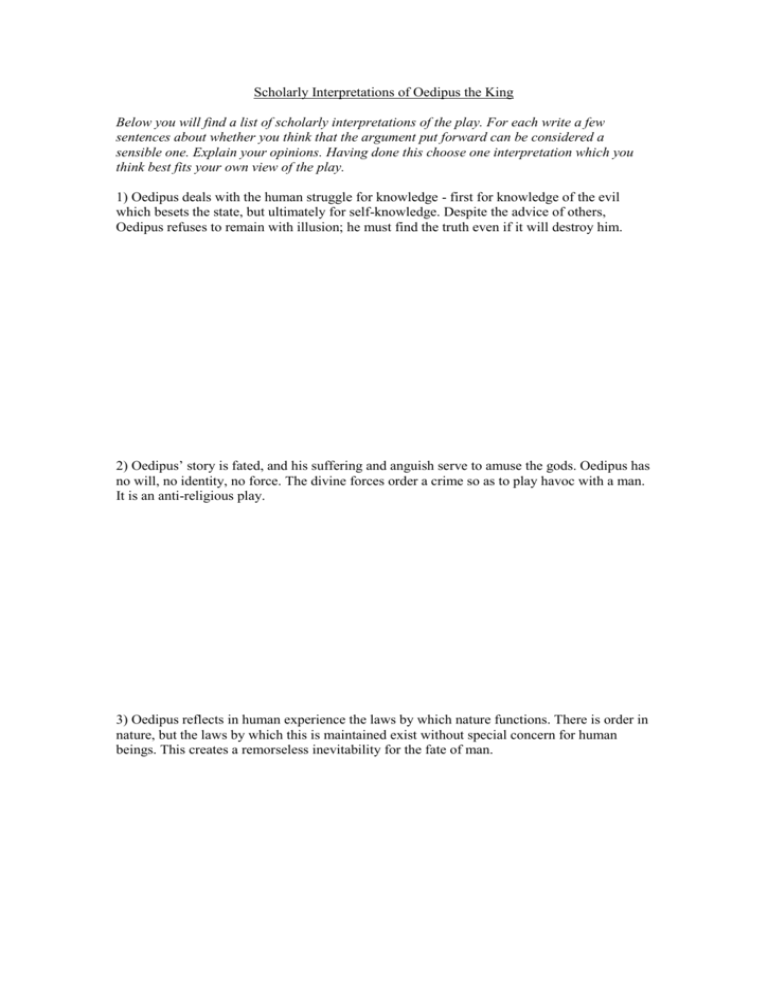
Scholarly Interpretations of Oedipus the King Below you will find a list of scholarly interpretations of the play. For each write a few sentences about whether you think that the argument put forward can be considered a sensible one. Explain your opinions. Having done this choose one interpretation which you think best fits your own view of the play. 1) Oedipus deals with the human struggle for knowledge - first for knowledge of the evil which besets the state, but ultimately for self-knowledge. Despite the advice of others, Oedipus refuses to remain with illusion; he must find the truth even if it will destroy him. 2) Oedipus’ story is fated, and his suffering and anguish serve to amuse the gods. Oedipus has no will, no identity, no force. The divine forces order a crime so as to play havoc with a man. It is an anti-religious play. 3) Oedipus reflects in human experience the laws by which nature functions. There is order in nature, but the laws by which this is maintained exist without special concern for human beings. This creates a remorseless inevitability for the fate of man. 4) In Oedipus Sophocles is supporting the traditional religion against contemporary attacks. Consciously or unconsciously Oedipus and Jocasta have sinned against the moral law and must be punished. The gods are justified in the fate they mete out to Oedipus and Jocasta. 5) The real issue in Oedipus is the conflict between father and son. Oedipus is incapable of the power to reason or to question sensibly. There are four father figures in Oedipus’ life – Laius, Polybus, Teiresias and Creon. In his relationship with all there is conflict. 6) Oedipus’ tragedy results from within his character. He only sees one side of a matter and is driven by his uncontrolled emotions. 7) Oedipus is innocent. He is wronged by the gods. His tragic heroism arises from his refusal to resign himself to the meaninglessness and purposeless cruelty of the world. He can assert the dignity of self in a vacuum of injustice and absurdity. 8) The play is not a conflict between man and fate but between man and the gods. Oedipus is seen like a god so the real gods have to defeat him to assert their superiority. 9) Oedipus has been placed on trial by the gods. The play is a re-enactment of that trial scene.

